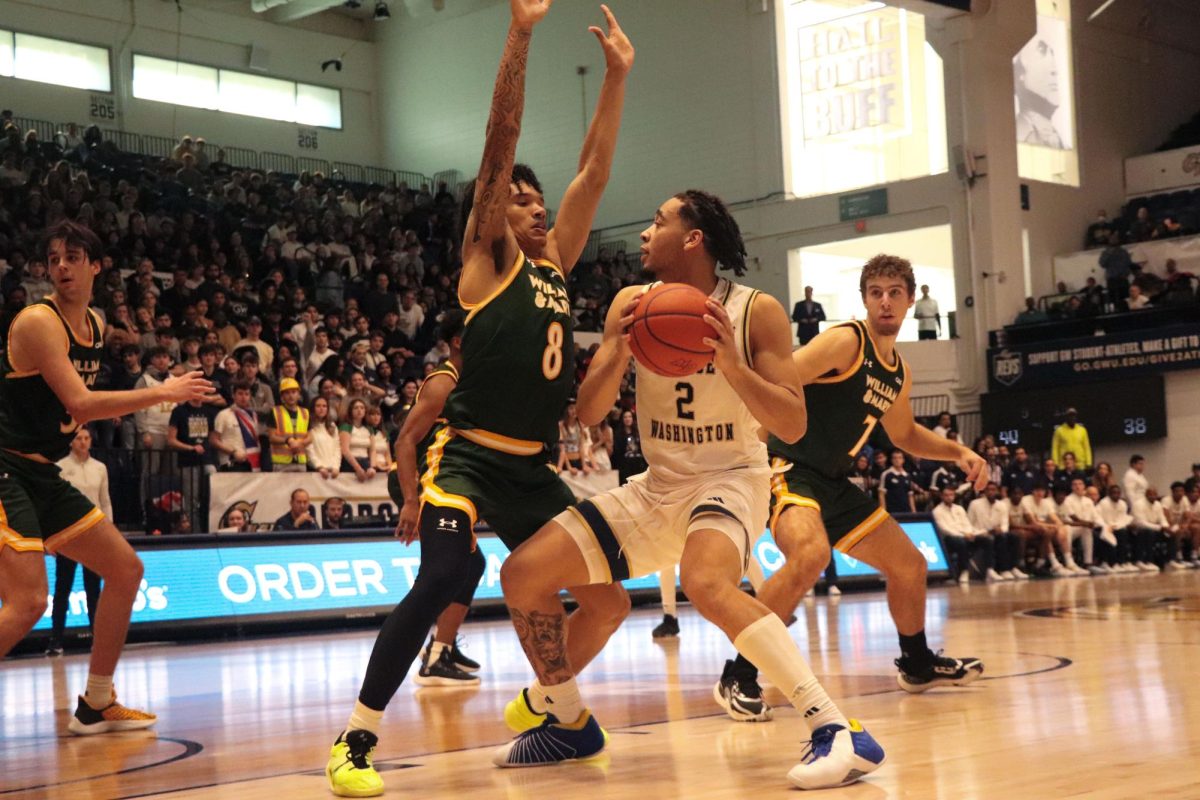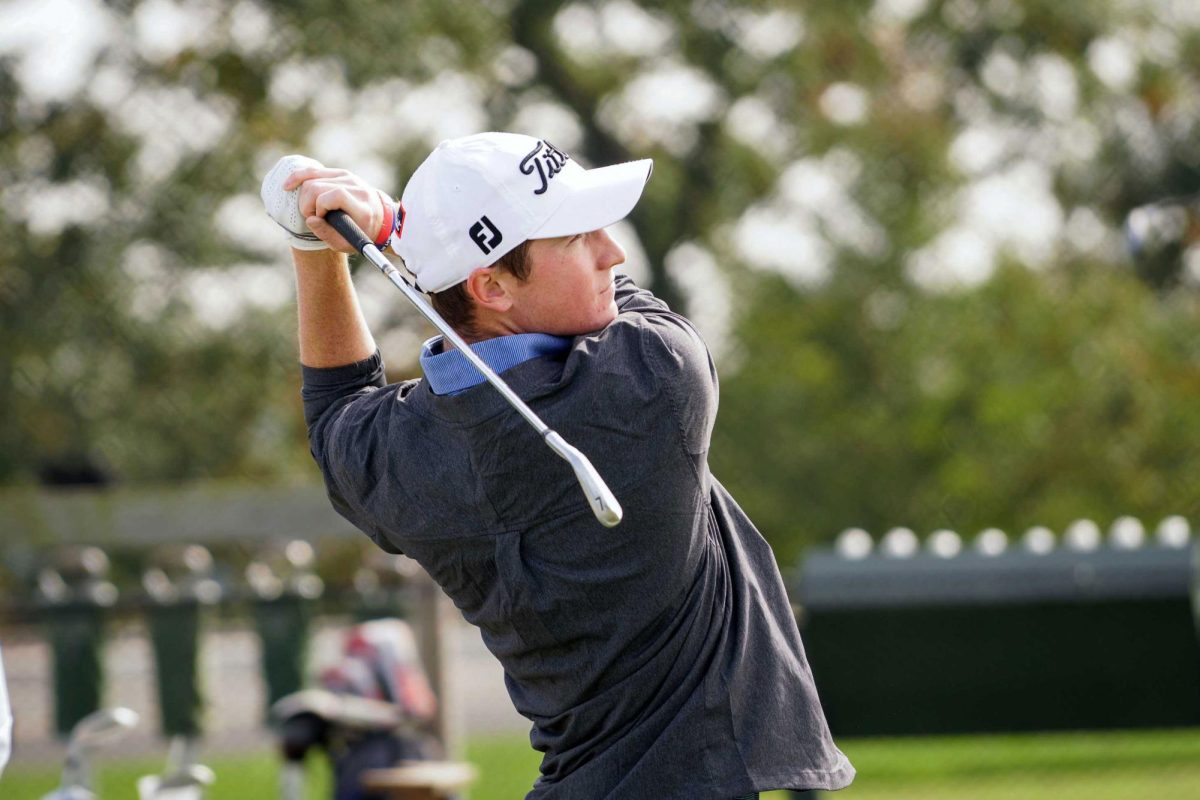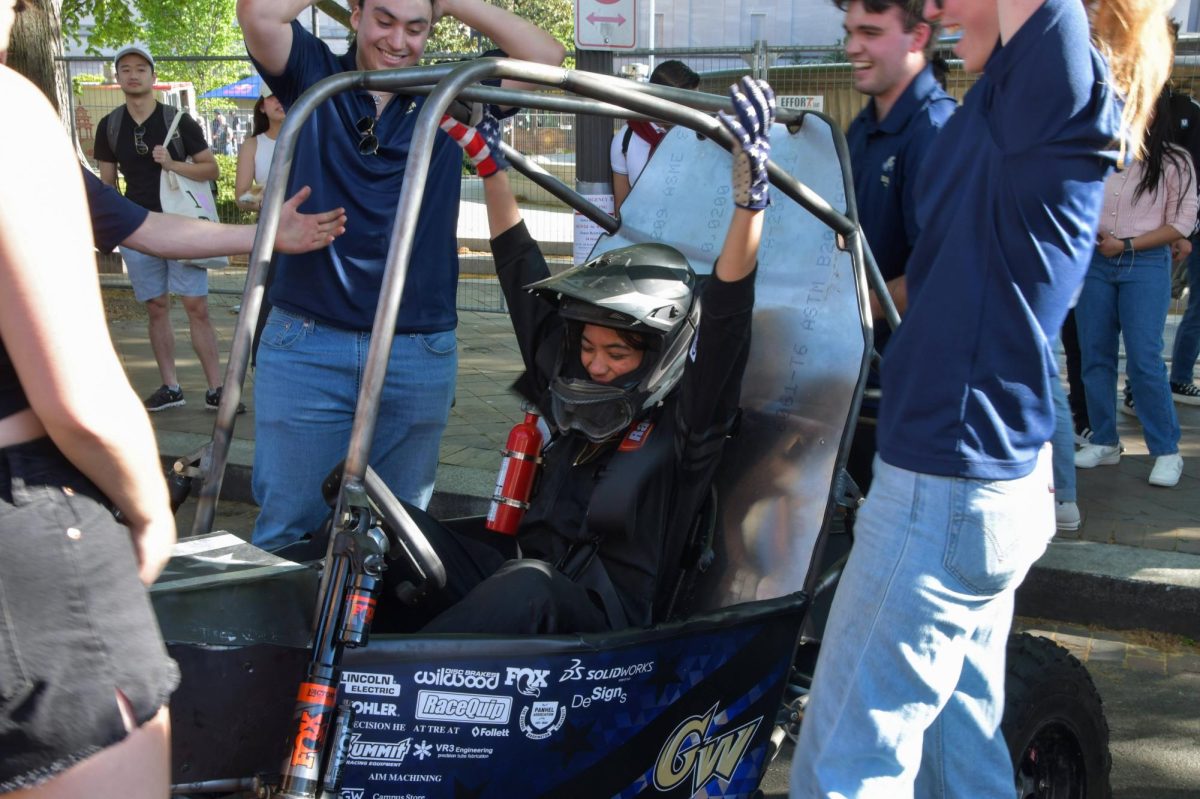They’ve won seven conference championships in nine years, made seven NCAA Final Four appearances and finished with a 27-6 final record. But the UMass men’s water polo team’s legacy is over.
The team was one of seven varsity sports eliminated by its athletic department last month, part of a $17 million school-wide budget cut handed down from the state. The decision showed students at UMass, GW and the Atlantic 10 conference that a winning sports program does not necessarily mean a permanent one.
The ripple effect is being felt at GW, which competes against UMass in gymnastics, tennis, volleyball and water polo. In addition to the loss of a conference opponent, GW Athletic Director Jack Kvancz said the decision at UMass could cause other public and private schools to evaluate their financial situations in a similar manner.
“Somewhere down the road, it will cause others to take a look at the sports they are offering and say, ‘Hey, can we afford this?'” Kvancz said.
For water polo, GW head coach Scott Reed said the cuts will be detrimental to UMass, GW and the entire Collegiate Water Polo Association, which has been trying to bolster itself as a respected competitive water polo conference.
“It puts a little damper on our reputation. We were getting to the point that we were seen as equals to West Coast water polo programs, and this cut takes us a step back,” said Reed, adding that most East Coast high schools do not field water polo teams. Reed is a former UMass water polo player and swam under current coach Russ Yarworth from 1989-92.
Kvancz said sports programs at GW are safe, as far as he can see. Recently GW added a varsity women’s lacrosse program and poured millions of dollars into a new sports facility last spring for tennis, soccer and lacrosse teams.
“You never want to say never,” Kvancz said, “but I don’t see (cuts) on the radar screen.”
A tight economy drove the Massachusetts legislature to require a $17 million budget cut from the public school. The UMass faculty senate split that $17 million among various departments in the university and decided that $1.1 million should come from the athletic department, which last month was named among the U.S. News and World Report’s top 20 athletic departments in the country.
Sam Wilkinson, editor in chief at the Massachusetts Daily Collegian, said the faculty made the decision based on the assumption that the football team would be cut because it lost between $1 and 2 million two years ago (2001-02 figures were not available).
But Bob Marcum, UMass athletic director who made the reccomendation, and Interim Chancellor Marcellette Williams, who made the final call, eliminated the seven smaller sports instead. Marcum told the Daily Collegian there were “no surprises” in which of the29 teams were eliminated, citing lack of interest as a primary reason.
Despite the men’s water polo team’s strong reputation, Marcum told the Collegian March 12, “When you look beyond the success they have had, there really is not a whole lot of interest in it.”
The high-profile sports – football, hockey and men’s basketball – escaped without cuts. About 20 percent of the school’s 800 student athletes will have their teams eliminated. Players are allowed to keep their scholarships for one additional year but are on their own after that.
Four full-time head coaches, two full-time assistant coaches and four part-time assistant coaches will lose their jobs when the sports are abolished, according to the Collegian. Each program is allowed to finish its season, and the cuts will take effect in the fall. All recruits signed to the cut sports are released from their agreements and are free to look at other schools, UMass men’s gymnast Sean Monaco said.
“There are no winners in a decision like this,” Marcum told The Hatchet.
“Going into it we didn’t expect anyone to accept or concur with the decisions that we faced.”
The decision was met with backlash from the UMass athletic community, its supporters and member schools of the A-10, including GW.
“We were heartbroken when we heard,” Monaco said in an interview. He added that his team, ranked eighth in the nation, heard rumors prior to the actual cuts and wrote letters to lawmakers trying to save the program. “We didn’t say cut someone else. We just said there are other ways to do it.”
Monaco said many UMass athletes hope to transfer so they can continue playing collegiate sports, which could benefit GW. Reed, who played water polo under the current head coach at UMass, said he has interest in members of the UMass water polo team.
“The UMass coach is a good friend. What I do now is what I’ve learned from him, and he felt safe pushing some of his players this way,” Reed said.
But for some athletes, transferring is not an option. Monaco said he looked at other schools but they were too expensive and did not offer the same quality program UMass once did.
“(The program’s strong reputation) is why I came here,” the gymnast said. “I knew I would be going to the national championships every year.”
Reed expressed his disappointment in seeing the men’s nationally respected water polo team and the other sports cut.
“They were left with a lot of options. They had the option to cut across the board, but they chose not to take money from the bigger sports,” he said. “What they did is only a short term answer.”







